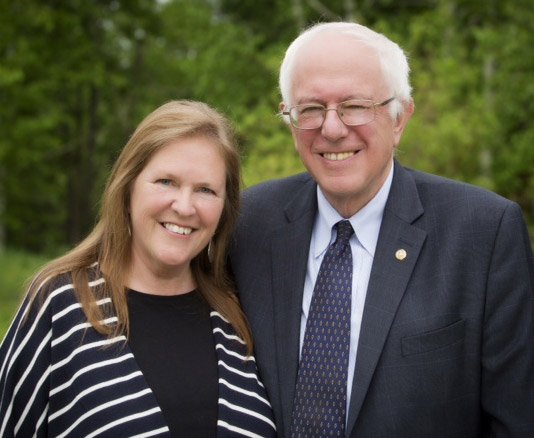
Welcome to ElectionMap. The race for the 2016 presidential nomination has produced numerous candidates for both the Democratic and Republican parties, as well as hundreds of Independent and third-party candidates. ParentMap would like to help our readers make informed decisions going into the upcoming election season by providing profiles of many of the presidential hopefuls. We have focused our coverage on three issues affecting families: student loan debt and rising tuition costs; benefits for low-income and working families such as paid parental leave, child care costs and SNAP/WIC benefits; and education issues related to standardized testing, implementation of the Common Core, and Universal Preschool initiatives. For each candidate, we look at their stated positions, as well as (when available) their actual voting history.
Bernie Sanders: Democrat
Bernie Sanders began his political career as the mayor of Burlington, Vermont. He served from 1981 to 1989, when he chose not to run again. In 1990, he joined the House of Representatives as an Independent. A self-described Democratic Socialist, he has always caucused with the Democratic Party, and has declared his candidacy as a Democrat.
Bernie Sanders’ 2016 political campaign is heavily focused on income inequality and issues affecting the declining middle class. Though he has individual categories for many issues on his website, his campaign is loosely organized around issues related to: income inequality, wages and job creation; climate change; immigration reform; women’s rights and the rights of LGBT individuals; caring for veterans; reforming the financial systems in politics, reforming banking; reforming medical care systems; and ending war.
Student loans and rising college tuition costs
Bernie’s record shows a deep concern for the rising costs of college and the reformation of the student loan system.
What he says
On his campaign website, Bernie has a section titled: “It’s Time to Make College Tuition Free and Debt Free,” where he says: “It is insane and counter-productive to the best interests of our country and our future, that hundreds of thousands of bright young people cannot afford to go to college, and that millions of others leave school with a mountain of debt that burdens them for decades.” Sanders believes that students should be able to attend public colleges and universities free of charge and should be able to secure very low interest rates for loans at private schools. Students who already have debt would be able to refinance at the much lower rates under his plan.
What his record says
In 2013, Bernie Sanders sponsored a bill in Congress to extend the lowered federal student loan rate of 3.4 percent until 2015. In May of 2015, Senator Sanders introduced the “College for All Act,” which would make college tuition free at all public colleges and universities. Bernie’s plan calls for a tax on Wall Street speculation that he says will completely finance this plan.
Parental benefits (paid leave, child care, SNAP/WIC benefits)

Bernie Sanders is blunt in his assessment that our systems in place for working and poor families are a failure, and has pledged to change them. He has recently introduced several bills to help rectify these problems.
What he says
Bernie is in favor of paid leave (both parental leave and sick leave benefits) for all workers. At the 2015 Primary Debate in Las Vegas, Sanders said: “To moms: We’re not going to separate you from your newborn baby, because we’re going to have paid medical and family leave like any other country on earth.” He is also in favor of paid vacation leave. In a speech this year on the Senate floor, Sander said: “If families are overworked and if husbands and wives do not even have the time to spend together with their kids ... at least for two weeks a year, people can come together under a relaxed environment and enjoy the family.”
Bernie describes the U.S. child-care system as “an embarrassment,” and told listeners at a campaign rally in Iowa in July that he would raise taxes on the wealthy to subsidize a national child care system, with workers who were paid living wages: “We need the best trained, best paid, most qualified people to be working with these young kids.”
In a 10-page report written while he was on the Senate Budget Committee, Bernie eviscerated the Republican-backed 2015 budget proposal for its cuts to social programs, noting that the budget would cut the “Special Supplemental Nutrition Program for Women, Infants and Children (WIC) — in an average year, these cuts that would leave 1.2 million people out of the program entirely.”
What his record says
He has proposed a bill this year guaranteeing paid vacation leave to almost all Americans through an insurance-like system where workers would pay in a small amount with each paycheck in order to receive their vacation time.
In 2011, Senator Sanders proposed a bill to “provide child care and early education to all children six weeks old through kindergarten,” called “The Foundations for Success Act.” The bill died in that session of Congress.
As early as 1994, Bernie voted to fully fund WIC programs. In 2012, Bernie voted against limiting eligibility for SNAP benefits.
Education (Common Core, standardized testing, universal preschool)
Bernie has not openly stated his position on the Common Core, but as his state was one of the leaders in adopting it, he probably supports it, particularly as a means to allow teachers to meet standards, without teaching to tests. Sanders, who serves on the Senate Education Committee, is opposed to No Child Left Behind and standardized testing. He has long been a supporter of Head Start, having worked as a Head Start teacher before his political career, and is in favor of universal preschool.
What he says
In a press release issued by Senator Sanders in 2011, explaining his vote for the “Elementary and Secondary Education Reauthorization Act,” Sanders’ office stated that the bill would support “states, like Vermont, that have adopted the Common Core Standards so students are taught the skills they need to be in college and career ready.”
In June of 2015, leading into election season, Sanders met with the President of the NEA, the largest teacher’s union. He stated his continued opposition to No Child Left Behind, and to “this absurd effort to force teachers to spend half of their lives teaching kids how to take tests.”
In the announcement of his 2016 campaign, Bernie reiterated his long-time support for universal pre-school: “Instead of cutting Head Start and child care, we are going to move to a universal pre-K system for all the children of this country.”
What his record says
In 2011, Senator Sanders voted for the “Elementary and Secondary Education Reauthorization Act,” and in 2015, he voted to renew that act through the “Every Child Achieves Act.”
Senator Sanders initially voted for NCLB, but by the time it was finalized in the Senate, he voted against NCLB in 2001, and has continued to oppose any renewal of the act, saying: “By placing so much emphasis on standardized testing, NCLB ignores many of the skills and qualities that are vitally important in our 21st century economy, like problem solving, critical thinking and teamwork, in favor of test preparation that provides no benefit to students after they leave school.”
In 1994, Bernie voted to fully fund Head Start programs. In his 2011 “Foundations for Success Act,” Bernie proposed funding universal preschool for at least 10 states through a grant system.











